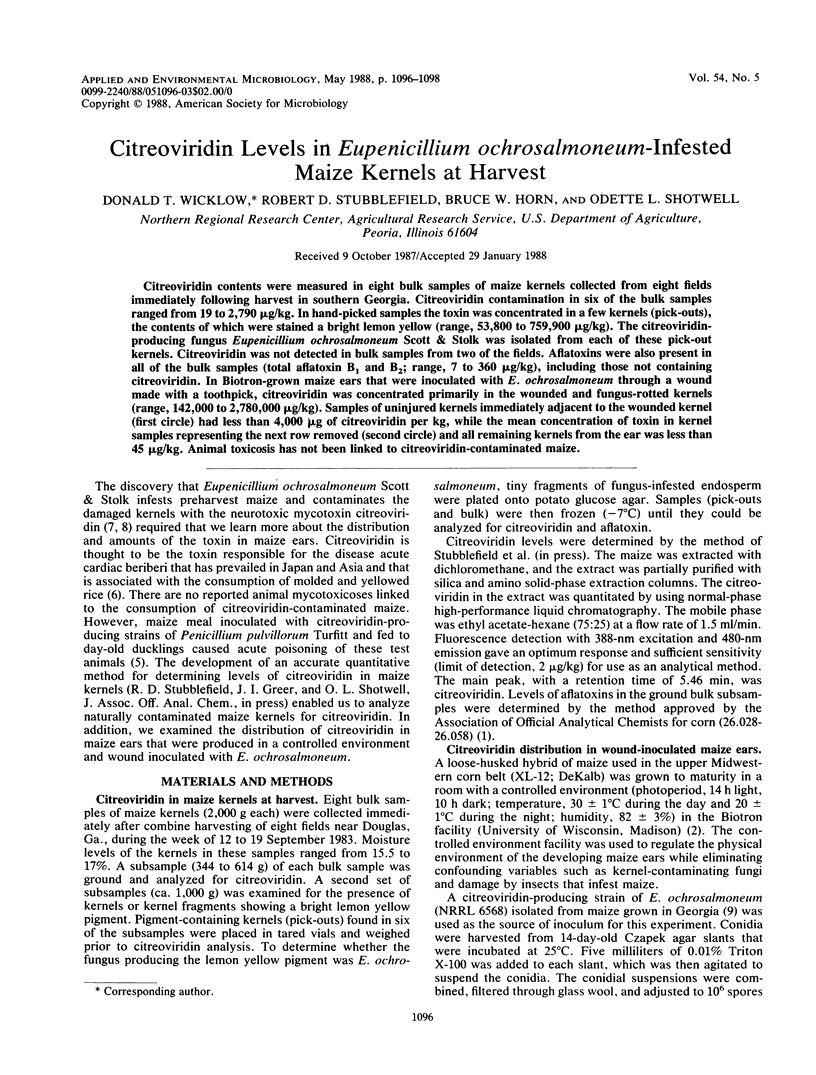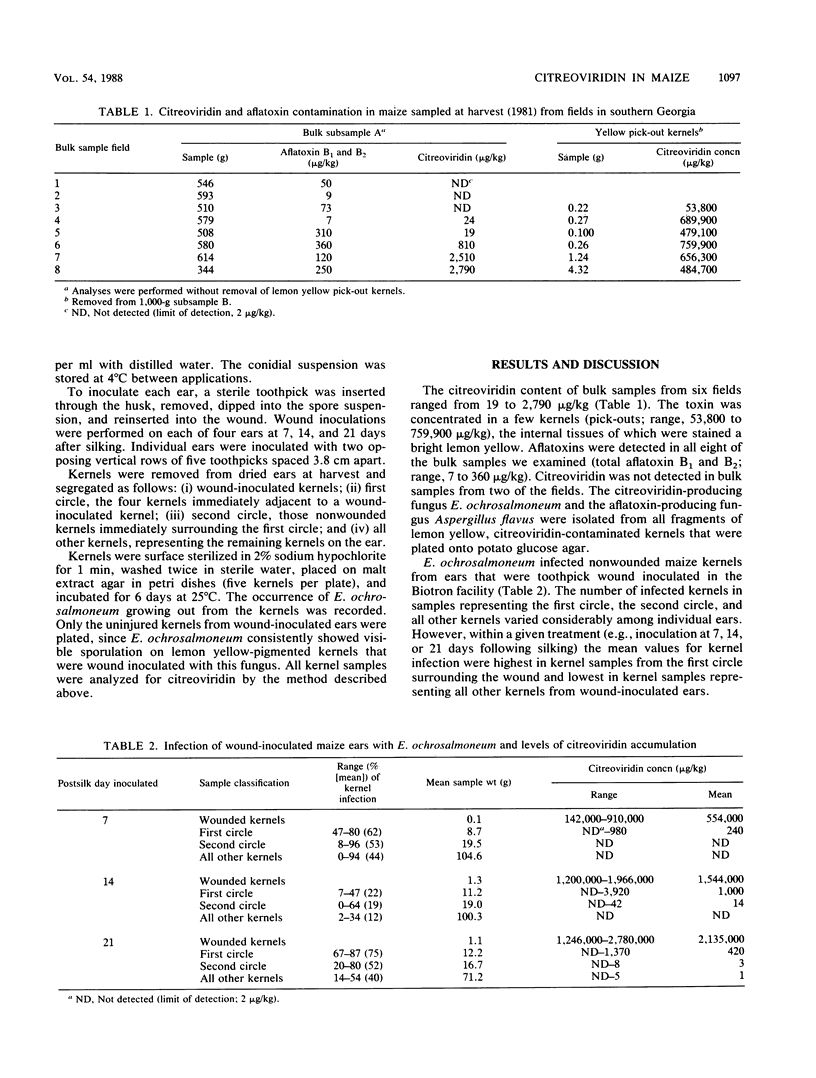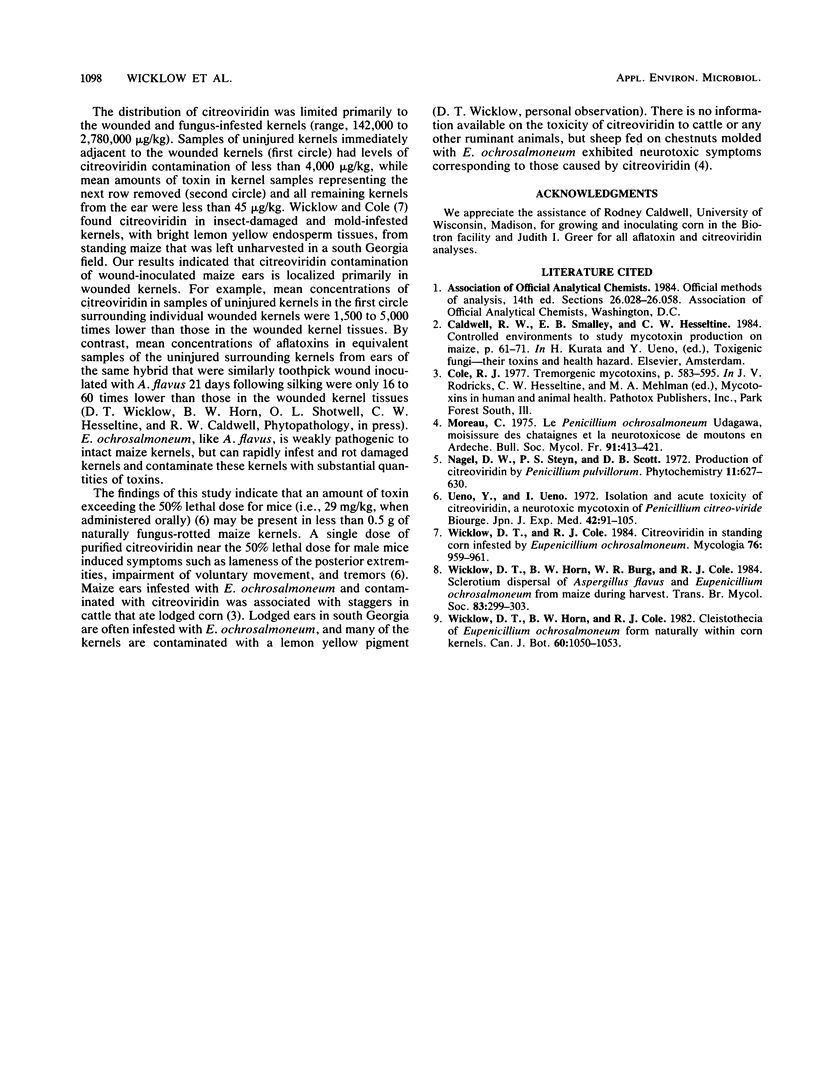Abstract
Citreoviridin contents were measured in eight bulk samples of maize kernels collected from eight fields immediately following harvest in southern Georgia. Citreoviridin contamination in six of the bulk samples ranged from 19 to 2,790 micrograms/kg. In hand-picked samples the toxin was concentrated in a few kernels (pick-outs), the contents of which were stained a bright lemon yellow (range, 53,800 to 759,900 micrograms/kg). The citreoviridin-producing fungus Eupenicillium ochrosalmoneum Scott & Stolk was isolated from each of these pick-out kernels. Citreoviridin was not detected in bulk samples from two of the fields. Aflatoxins were also present in all of the bulk samples (total aflatoxin B1 and B2; range, 7 to 360 micrograms/kg), including those not containing citreoviridin. In Biotron-grown maize ears that were inoculated with E. ochrosalmoneum through a wound made with a toothpick, citreoviridin was concentrated primarily in the wounded and fungus-rotted kernels (range, 142,000 to 2,780,000 micrograms/kg). Samples of uninjured kernels immediately adjacent to the wounded kernel (first circle) had less than 4,000 micrograms of citreoviridin per kg, while the mean concentration of toxin in kernel samples representing the next row removed (second circle) and all remaining kernels from the ear was less than 45 micrograms/kg. Animal toxicosis has not been linked to citreoviridin-contaminated maize.
Full text
PDF


Selected References
These references are in PubMed. This may not be the complete list of references from this article.
- Ueno Y., Ueno I. Isolation and acute toxicity of citreoviridin, a neurotoxic mycotoxin of Penicillium citreo-viride Biourge. Jpn J Exp Med. 1972 Apr;42(2):91–105. [PubMed] [Google Scholar]


